- September 2, 2020
- Posted by: p mulee
- Category:
Government agencies have for over two years blatantly defied President Uhuru Kenyatta’s order to publicise the identity of government suppliers, complete with their shareholding.
The directive was seen as a bold move to fight graft.
Procurement in government remains the bastion of big money corruption in Kenya that has refused to end despite high profile prosecutions in the recent past.
The failure by ministries and parastatals forced the President on Monday to issue a similar order to the scandal-ridden Kenya Medical Supplies Authority following a public outcry over alleged theft of Covid-19 cash.
In a June 14, 2018, Executive Order, President Kenyatta asked all ministries, state departments and agencies that the particulars of the winning bidders, including their directors and shareholders, be made public.
Also to be publicised were the technical and financial capacity of the winning firms, the contract sum as well as names of the evaluation committee members.
“The procuring entities shall consolidate and publish the information above on the 15th day of every subsequent month, outlining the tender and supplier data for the previous month,” the Executive Order reads in part.
Those details were to be published in the websites of the procurement entities, e-Citizen, Public Procurement Regulatory Authority platforms, public notice boards and official government publications.
The order came just days after Uhuru ordered heads of procurement and accounting units to step aside, hand over their jobs and prepare for fresh vetting to weed out those who had accumulated unexplained wealth.
The exercise, which was to be conducted by many agencies, including the National Intelligence Service, complete with a lie detector, had many officers cleared.
Anti-graft crusaders are now questioning government commitment to eradicate graft given that most “tenderpreneurs” are highly connected individuals operating behind the scenes.
In the Kemsa scandal, a vocal Jubilee insider is said to have used proxies to bag tenders worth billions.
ICT Cabinet Secretary Joe Mucheru told the Star that his ministry’s task was to provide the platform for listing the tenders – the website.
“Ours is to provide the platform, which we have done. The website is managed by the Public Procurement Regulatory Authority and the National Treasury. If the website is not up to date, then it is for PPRA to tell,” he said.
However, a check on tenders.go.ke website has nothing close to what the President directed.
There are no details of winning bidders and the names of their directors as was directed by the President.
The website has general information about tenders floated by various government entities.
The CS said the challenge at the inception was that a number of procurement officers had been asked to step aside, hence delaying the uptake.
Infrastructure PS Paul Maringa, whose department has the largest share of government contracts, said he’d check for compliance. “We ought to be. We will review and revert,” he told the Star.
PPRA boss Maurice Juma was not available for a comment when the Star contacted his office on the challenges they may be facing in implementing the President’s directive.
The authority, in a January 2020 circular, lamented that procuring entities were not publishing contracts awarded as directed.
“We have noted that not all public entities have registered with the authority to facilitate publishing of the required information in the public procurement information portal (PPIP),” the circular reads.
Anti-graft crusaders say the situation reflects how dysfunctional the government can be, especially in implementing its own directives.
Ndung’u Wainaina, director International Centre for Policy and Conflict, said President Kenyatta appears non-committal to the fight against corruption.
He said the President is “engaging Kenyans in a smoke and mirrors game. I don’t think he is genuine in fighting corruption,” Wainaina said.
The ICPC boss castigated the head of state, saying things went south after the government started by weaponising the fight against corruption.
“We only see a pattern of high octane statements being issued and no corresponding real action,” he said.
“We expected to see him (President) implement the statement he made when he presented a list of suspected corrupt official in Parliament that at mention, one steps aside,” Wainaina said.
Transparency Internal executive director Sheilla Masinde said the Public Procurement and Asset Disposal Regulations should have included sanctions for non-compliance.
Masinde holds that if the government is truly committed to the graft war, the entire public procurement framework for urgent needs should be revisited and addressed holistically not spasmodically.
“The Public Procurement Regulatory Authority should issue emergency procurement guidelines to insulate procurement processes against any form of manipulation, and these should include guidance on the publication of procurement data,” she told the Star.
“All government agencies need to toe the line to enhance transparency in public procurement. Implementation of Executive Order No. 2 needs to be expedited with all procurement data published to ensure access to timely and accurate information on public procurement,” the TI boss said

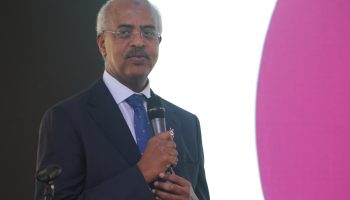



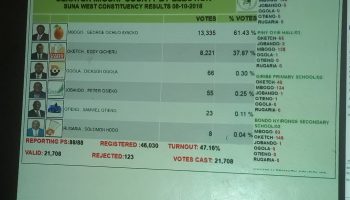
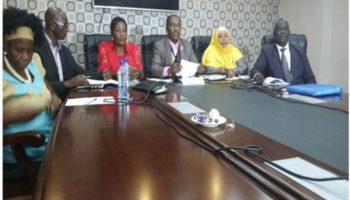




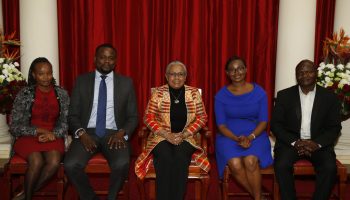


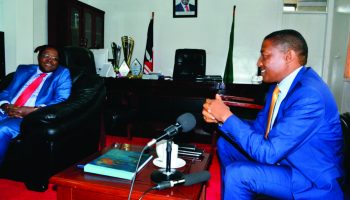


This watch is just so funky. I love it. Getrs great compliments! The art design is cool!